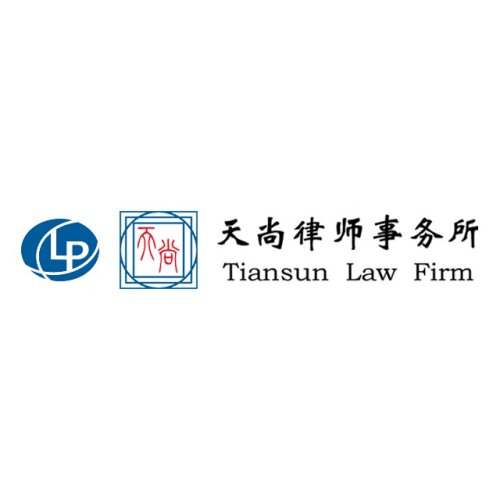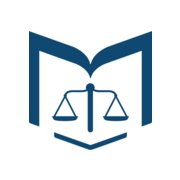Best ADR Mediation & Arbitration Lawyers in Beijing
Share your needs with us, get contacted by law firms.
Free. Takes 2 min.
List of the best lawyers in Beijing, China
About ADR Mediation & Arbitration Law in Beijing, China
Alternative Dispute Resolution (ADR), which encompasses mediation and arbitration, is a set of practices used in Beijing, China, to resolve disputes without resorting to litigation. Mediation involves a neutral third party who helps the disputing parties reach a consensual agreement. Arbitration, on the other hand, involves an impartial arbitrator or a panel that listens to the parties' cases and makes a binding decision. ADR is recognized and regulated by Chinese laws and is seen as a more efficient, less adversarial, and often less expensive alternative to traditional court proceedings.
Why You May Need a Lawyer
Legal advice may be necessary in ADR for various reasons. You might need to draft or review an arbitration or mediation agreement, understand the legal implications of the ADR process, or seek representation during these proceedings. Lawyers can also provide navigation through complex legal issues or international aspects of ADR. In situations where the stakes are high, such as significant financial concerns or sensitive business negotiations, legal counsel becomes even more crucial to ensure that your interests are adequately protected.
Local Laws Overview
ADR in Beijing operates under the broader legal framework of China. The 'Arbitration Law of the People's Republic of China' and 'Civil Procedure Law' are key legislative texts governing arbitration. The laws stipulate that the parties may agree to arbitration being administered by various institutions or ad hoc. Mediation does not have a specific law governing its processes, although it is encouraged and sometimes integrated within judicial proceedings. Both domestic and international arbitrations are supported, and China is a signatory to the New York Convention, facilitating the enforcement of foreign arbitral awards.
Frequently Asked Questions
What is the difference between mediation and arbitration?
Mediation is a non-binding process where a mediator helps parties to reach a voluntary agreement. Arbitration is a process where an arbitrator makes a decision that is usually binding on the parties.
Is ADR confidential in Beijing?
Yes, ADR processes are generally confidential, with parties often bound by confidentiality agreements.
Can ADR decisions be enforced in Beijing?
Arbitration decisions, or awards, can be enforced by local courts in Beijing. Mediation agreements can also be enforced if they have been converted into a written settlement agreement.
Are there specific ADR institutions in Beijing?
Yes, Beijing has several ADR institutions, such as the Beijing Arbitration Commission (BAC) and the China International Economic and Trade Arbitration Commission (CIETAC).
Can foreign lawyers represent clients in ADR proceedings in Beijing?
While foreign lawyers may offer consultation, representation in ADR proceedings typically requires a lawyer licensed in China. The exact conditions may vary depending on the rules of the particular ADR institution.
How do I choose between mediation and arbitration?
The choice depends on the specific circumstances of your dispute, your willingness to compromise, and the need for a binding resolution.
What is ad hoc arbitration?
Ad hoc arbitration is not administered by an ADR institution but is conducted according to rules chosen by the parties or those prescribed by law.
Can I appeal an arbitration award?
In general, arbitration awards are final and binding, with limited grounds for appeal or setting aside under the Arbitration Law.
What is the role of the People's Court in ADR?
The People's Court may get involved in ADR to assist with the enforcement of awards or in case of disputes related to arbitration jurisdiction.
How long does the ADR process usually take in Beijing?
The duration can vary widely based on the complexity of the case and the type of ADR chosen. Institutions like BAC have rules to expedite proceedings.
Additional Resources
For those needing legal advice in ADR Mediation & Arbitration, the Beijing Arbitration Commission (BAC) and the China International Economic and Trade Arbitration Commission (CIETAC) serve as valuable resources. They offer detailed procedural rules, list accredited arbitrators and mediators, and provide other relevant information concerning ADR procedures in Beijing.
Next Steps
If you require legal assistance in ADR Mediation & Arbitration, the first step is to consult with a lawyer experienced in ADR proceedings. This legal professional can help review your case and advise you on the most suitable ADR method, as well as assist in drafting appropriate agreements and representing you during the process. It is also advisable to understand the terms and conditions related to your arbitration or mediation institution in Beijing, as they can significantly affect your rights and obligations.
Lawzana helps you find the best lawyers and law firms in Beijing through a curated and pre-screened list of qualified legal professionals. Our platform offers rankings and detailed profiles of attorneys and law firms, allowing you to compare based on practice areas, including ADR Mediation & Arbitration , experience, and client feedback.
Each profile includes a description of the firm's areas of practice, client reviews, team members and partners, year of establishment, spoken languages, office locations, contact information, social media presence, and any published articles or resources. Most firms on our platform speak English and are experienced in both local and international legal matters.
Get a quote from top-rated law firms in Beijing, China — quickly, securely, and without unnecessary hassle.
Disclaimer:
The information provided on this page is for general informational purposes only and does not constitute legal advice. While we strive to ensure the accuracy and relevance of the content, legal information may change over time, and interpretations of the law can vary. You should always consult with a qualified legal professional for advice specific to your situation.
We disclaim all liability for actions taken or not taken based on the content of this page. If you believe any information is incorrect or outdated, please contact us, and we will review and update it where appropriate.
















